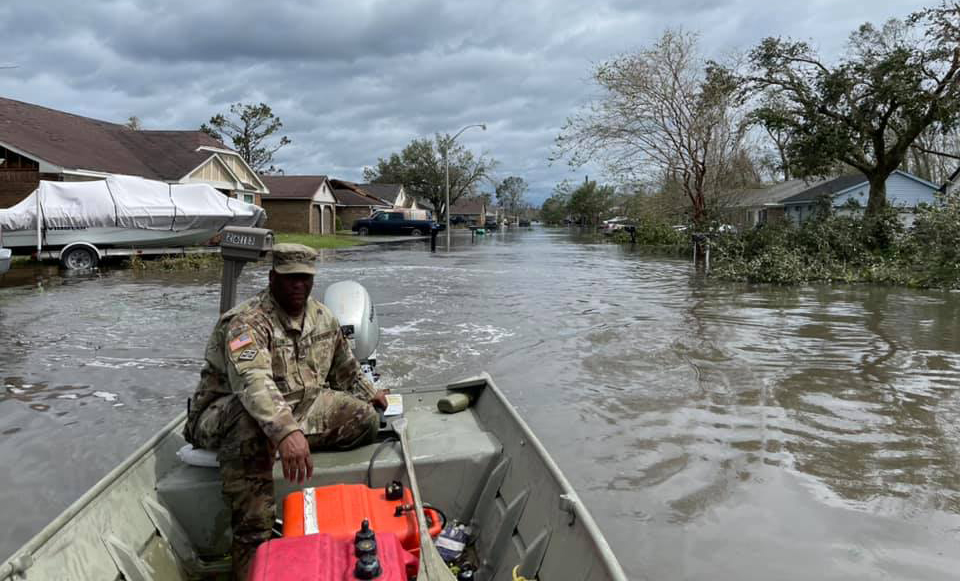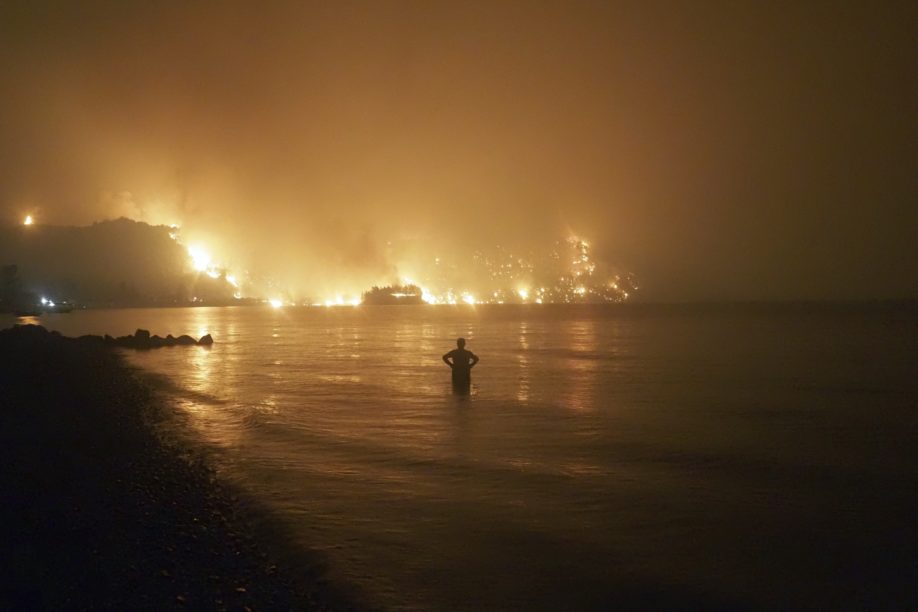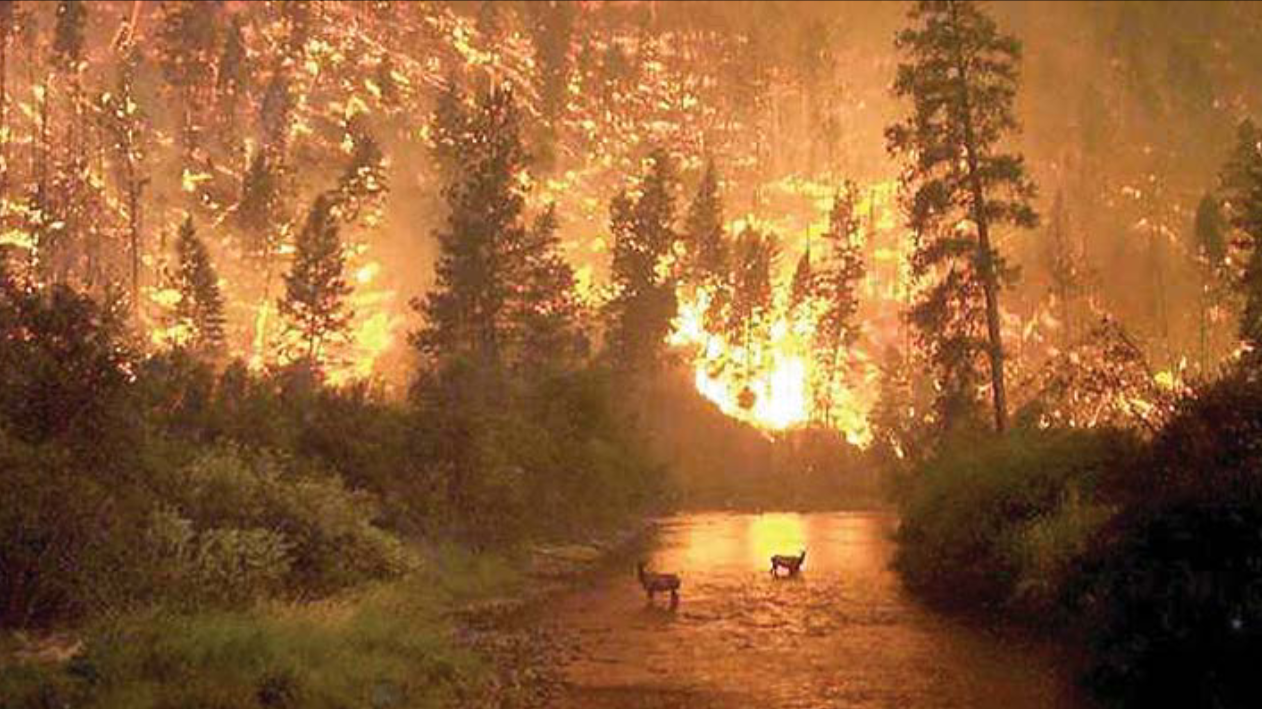We’re at 1.1 degree of warming. As the most recent IPCC report confirms, what we’re seeing now hasn’t even begun to reflect how much carbon has already been emitted, let alone what we’ll emit tomorrow. We have not yet begun to reap what we have sowed—a statement that is as true for climate breakdown as it is for this moment’s emotional toll.
There are new qualities to the language of the sixth IPCC report. This document, a global, scientific consensus on our best understanding of the physical basis of climate change, has confirmed that everything that’s happening right now—the heat domes, the wildfires, the floods—are not our future, but a fleeting, relatively peaceful moment in the present. There are conclusions made without equivocation, avenues foreclosed. When it turns to the future, the report uses words like “inevitable”, “irreversible”, “unprecedented”. It talks about the need for change that’s “immediate, rapid, large-scale.”

Some neuroscientists believe that the origin of humanity’s advanced consciousness lies in the fact that we feel before we think. “Although we do not always recognise them for what they are, [feelings] regulate almost all our voluntary behaviour through their various inner spurs and spurts,” writes the neuroscientist Mark Solms. “How,” he asks, “can you make choices without … some evaluative system which tells you which option is better or worse?”
In the mesmerising documentary film, I can’t get you out of my head: An Emotional History of the Modern World, Adam Curtis surveys several huge shifts in power and aborted transitions: the Chinese Cultural Revolution, the Saudi state’s fossil-fuel-backed hyperfinancialisation, the ebbs and flows of conspiracy theories, the destruction of the revolutionary potential of the Black Panthers, etc. For Curtis, the common theme running through the past seventy years of history is the inevitable iron grip of ‘old systems of power’ on a false, eternal present, shutting down every possibility of real change as it emerges. His ‘emotional history’ also shows how in atomised, capitalist societies, where individualism reigns, frustrated personal desires and unarticulated emotions act as a fuel to empower PR charlatans, tech-utopians, doomed revolutionaries, and ideological managerialists. He recreates this effect in the experience of watching, as images and short clips from the BBC’s archive are juxtaposed with music in a way that evokes feelings you can’t quite name—but Curtis does, with the aid of broad generalisations, sometimes-dubious leaps of argument, and perfect received pronunciation, in a process that feels a little like entrancement.

I’ve been thinking a lot about I can’t get you out of my head in the weeks leading up to the next Conference of the Parties, where, as a leaked companion IPCC report made clear, we need “rapid” consensus and action—particularly on the part of the richest countries—to stop burning oil, coal and gas. Where we need an agreement that global emissions will peak in 4 years and halve in a decade, a huge commitment to invest in this transition, and revolutionary changes in the existing systems of agriculture and other key industries. All of this must begin now, and governments must then stick to the plan for decades, through what will undoubtedly be tumultuous blowback from industry, as societies are buffeted by increasingly severe crises caused by the warming that’s already locked in.
The phrase ‘climate anxiety’ has been knocking about for years now, accelerating in use around 2007, when the fourth IPCC ARC was published. But the term really only fits people already experiencing an acknowledged and informed dread. Many more will experience it as the slinky, slithery affect that Curtis is so good at capturing in his strange juxtapositions of image and sound. It’s this that’s stuck with me: that a world-changing shift—for better or worse—can emerge first as a new mood, an atmosphere. More primal squirm, than primal scream.
What idea is going to capture the feelings of the sixth IPCC ARC? Judging from the op-eds that have followed its release, like Rebecca Solnit’s pitch, many observers are hoping we can square things off with hope. Their case is that the kinds of policies needed to address climate breakdown will also fix other social and environmental problems; that we know what to do, and the world more or less has the technology to do it.
These things are all true, and important to say. Hope is essential, and mostly isn’t dumb. But the tone of this sort of hymn just falls so oddly flat. Inside me, you, or your most blinkered, Elon-will-fix-it nutcase, there roam minotaurs: roaring, subterranean beasts filled with fear and anger that could latch onto anything offering reprieve or catharsis. And what does hope offer? Comfort and reassurance deferred to a later date, once the better world is here. And in its worst form—the form, sadly, that most frequently comes out of the mouths of actual politicians—this hopeful story is presented as apolitical; everyone wants these problems solved, and so the focus shifts to the managerial, to developing solutions that never address or even acknowledge the existence of the root causes of our broken climate, or our frightening, unstable world.

And yet we need people to choose the politics that leads to “rapid, large-scale, immediate” action now, and again, and again, and again. Those choices will be rooted in feeling.
This is what the language of ‘climate justice’ gets so right. Justice, with its insistence on consequences and accounting and its righteous demand for the redistribution of risk, is so much more determined than hope. That’s the kind of thing that might come closer to containing the strange, intense affect of an “unprecedented” world.






